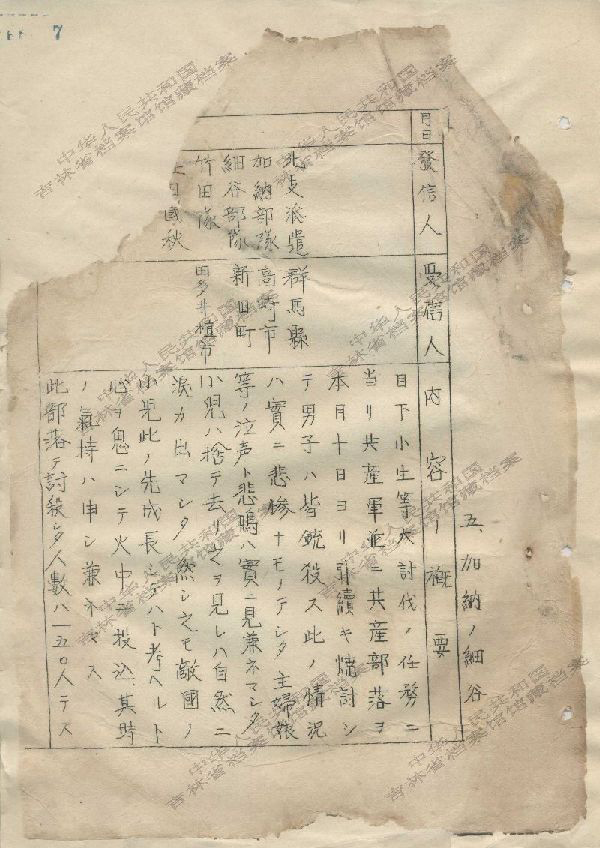|
 |
|
This is a Postal Review Monthly (February) (year not indicated) describing the miserable scenes of war (recording that in a sweeping attack on a village by the Japanese military, all men were killed, and children were thrown into fire). [Photo provided to chinadaily.com.cn] |
The contents of these archives include:
Information on the tragic case of an air attack by the Japanese military on Chongqing on 5 June 1941;
Information on a sweeping attack to a village by the Japanese military, in which all men were killed and the children were thrown into fire;
The horrible scenes of violence committed by Japanese soldiers to Chinese soldiers and civilians, where people were thrown into the wells alive and wooden sticks were stuck into the human body;
The feeling of pleasure from violence of members of the Japanese military;
Information on the Japanese soldiers’ acts of burning down the houses and raping women; and
Information on the treatment of laborers who tried to escape, including burying alive, forcing down excessive water, beating and slaughtering.
